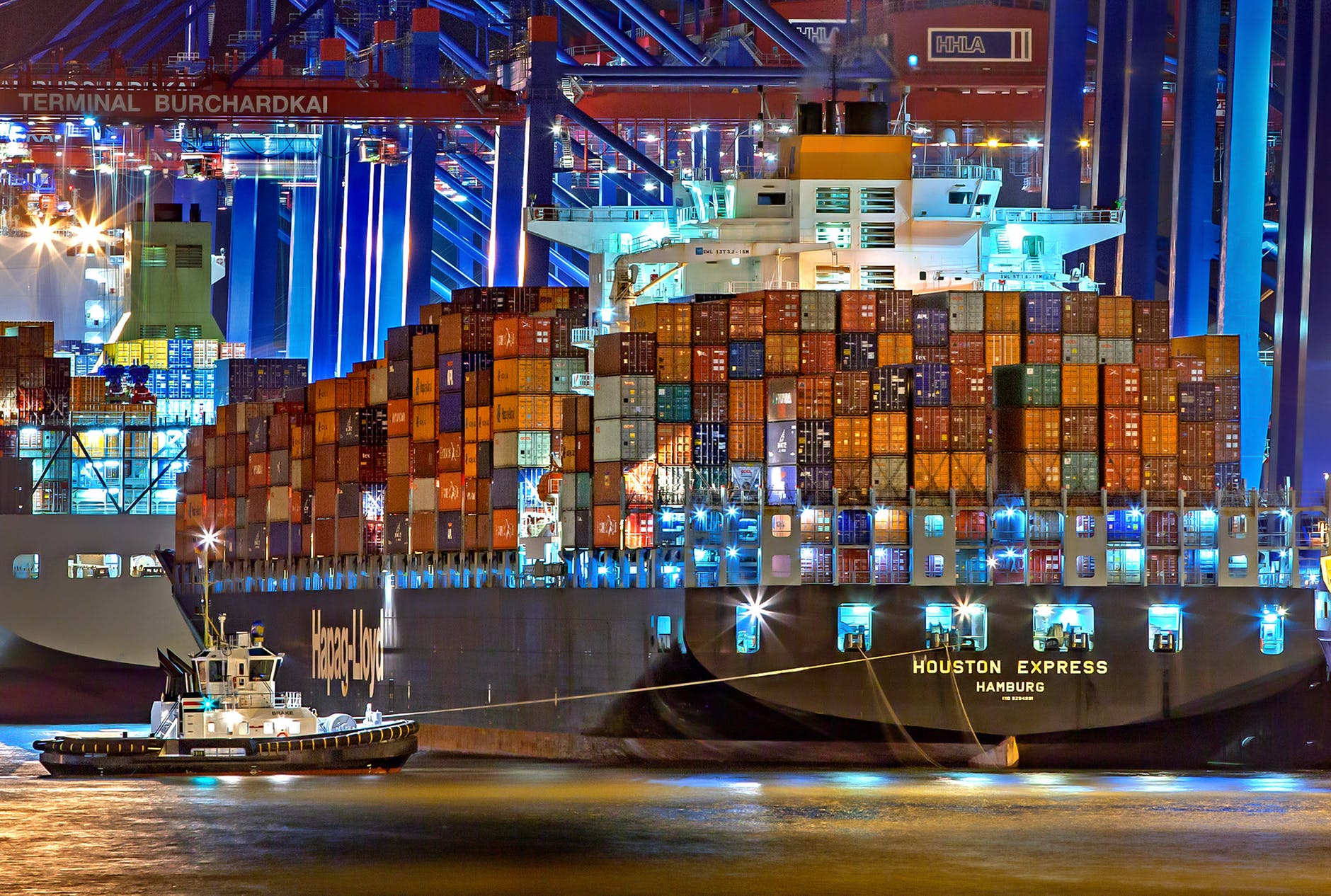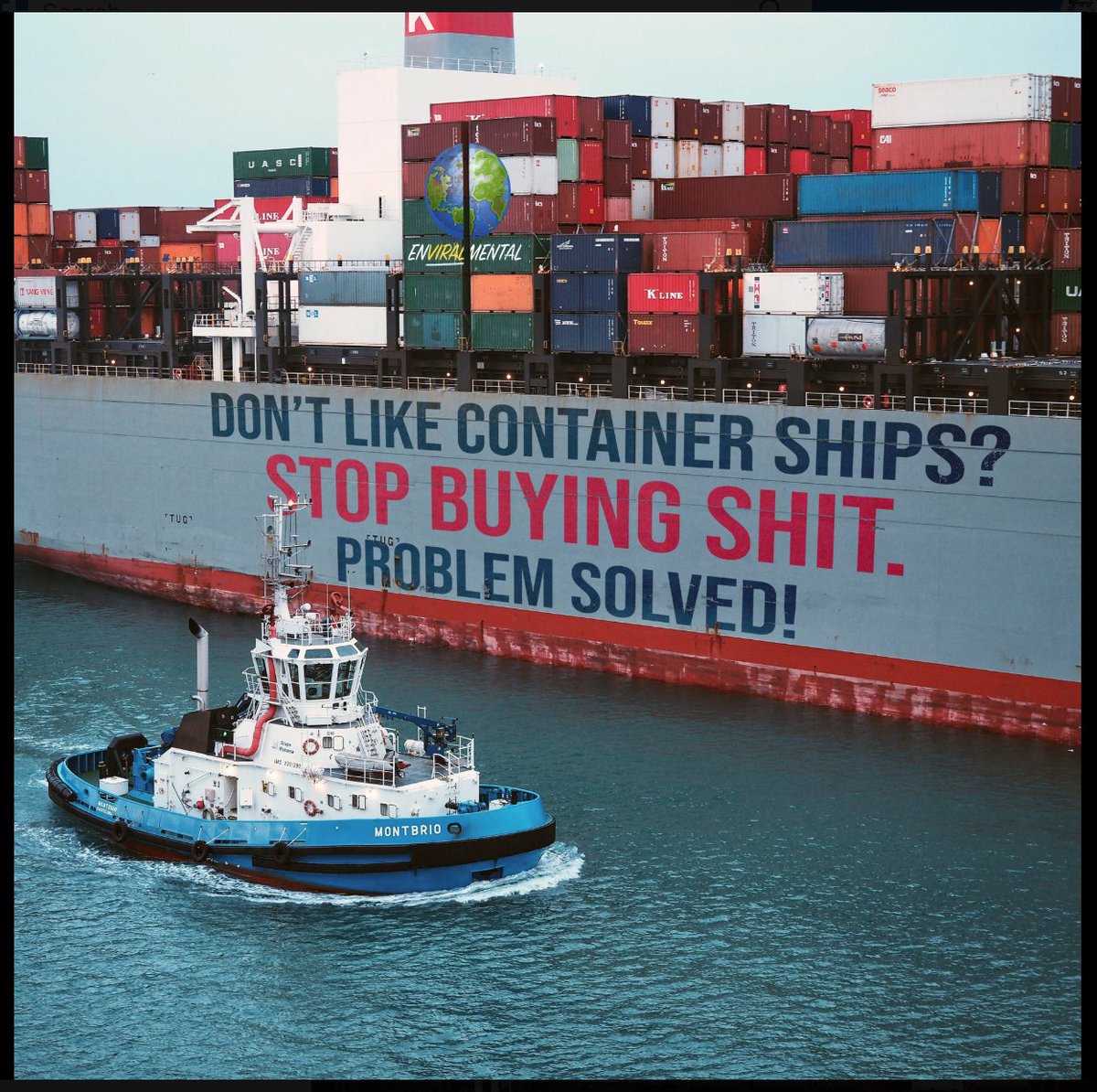Our globally connected supply chain of deadly diseases
It is all in the news - The Coronavirus. But I’ve seen this all before. I’m not saying we shouldn’t be concerned, but I think the impact of it on economics could be far more of an emergency and it shines a light on just how badly prepared we are in terms of dealing with any adverse event economically.

The world is interconnected at so many levels. Economically, there has never been a time in human history where one country’s challenges affects so many others, and today the challenge of the week appears to be the Coronavirus.
The risk of outbreak has become so severe that most major airline carriers are canceling all flights to and from China. United, American & Delta recently started to cancel all flights resulting in effective isolation of foreign persons direct from China to the USA (and other regions that they fly into). Europe has done much the same thing with its travel restrictions.
I’m no biologist, but from what I understand this virus is not all that different in catching it as the common cold, meaning that any infections that carry from human to human results in the virus spreading. But one could also assume that it could be carried within shipped products, or at least the risk must be there as well.
At a minimum, US companies with operations in China that support their reliance on the region for their supply chains, particularly in the tech industry, are shuttering their doors at rapid pace. Apple, Google, HP, etc. have all shut their operations down in provinces affected, told their employees to work from home, etc. which directly impacts their supply chain at the core.
While corporations were quick to move manufacturing offshore to China, these decisions were often made by accountants with spreadsheets being driven by ongoing needs to increase corporate earnings to support shareholders, rather than by some rational person who has ever lived in the foreign land that they want to trade with. They often lack any empathy with the local region and its challenges - and as history has shown, China has many challenges when it comes to occupational health & safety, and general health issues. I’m sure you have seen images of millions wearing face masks on the streets of Shanghai and Beijing as this is the normal modis operandi of those regions. Anyone would have to realize that there is a problem here - mainly driven by over-population issues, of which I’ve written about many times before.
So when a corporation in some comfortable board room decides to outsource either their entire supply chain or parts of it to China and that supply chain is disrupted, what does this mean?
Why? Well simple. Inflation.
If it costs more to make something, the customer will pay. It really is that simple.
The inflation rates over the past 15 or so years has been so low, that bankers have been able to reduce interest rates based on this artificially low inflation rate. Yet the problem is that this rate is being driven way down because the cost of goods & services from China are so cheap. We’ve become addicted to cheap. We sort our Amazon searches on “Pricing, lowest first” and that’s reflective of the fact that we want cheap stuff.

Imagine that you can’t have cheap stuff anymore. Imagine that there is a moratorium on cheap stuff. Your Apple iPhone (which isn’t cheap) is being filled with cheap Chinese chips and manufactured parts. Apple have done incredibly well in profit levels by assembling the outsourced products into their product. I mean Apple doesn’t make integrated circuits. They don’t make glass. They don’t make communications antennae. They are a designer & assembler of those components. And a massive % of those components come from China.
If forced to source those components from other regions, they won’t get the price points they currently have. Yet we all want our phones. And next year’s model phones. If those phones start to cost $2,500 and upwards, that’s inflation. That’s the most likely scenarios if component inventory levels go down and transport is restricted to and from China.
You can replace iPhone with pretty much any item that you buy that is either 100% made in China or is assembled from parts made in China. That’s going to include 95% of all electronic and electrical items, car parts, many construction items, tools, etc.
And this is where it gets tricky. The US Federal Reserve have keep interest rates very low for a long time, but their rationale behind this was inflation rates. When inflation starts to spike, the lever that they pull is to raise interest rates. If inflation rises to 5%, for example, it would typically result in raising the interest rates to 3-4%. Possibly more.
Now consider the scenario in a country like the USA that has $23T of debt and future unfunded liabilities in the hundreds of trillions. And student loan debt levels at $1.6T and rising. If you raise interest on all of that, where will the government get the money to pay for it?
They have two options - raise taxes dramatically, or reduce government services. Maybe both. The banks will raise their mortgage rates, forcing those who were on the edge to purchase a home out of the property market. Wages will be forced higher to help handle the increased pricing here, and that just results in less employment and more focus is moved to robotics and AI rather than expensive humans.
This whole thing is a collapse waiting to happen, and it is all pegged to our addiction to cheap shit from China. Turn off that spigot and the world collapses.
Unfortunately the US is not the only country tethered to China. Others may precede the collapse, and may fall harder than the USA. Those countries with much higher debt to income ratios for the average person are likely to fall very hard. That’s Canada, Australia, UK, etc. At a time when many of them have their own internal challenges to deal with.
Thanks Coronavirus.
There are other risk factors too
The public trade wars between Trump and Xi over China’s trade imbalance with the US is the lack of willingness of the US to take responsibility for the addiction to constant Wall Street demands to increase shareholder valuations. When you do a deal with another country, in this case a communist country when your own country has a long history of being anti-communist, you are crossing a bridge most would say is too far.
But that didn’t stop Fortune 500 corporations embracing global outsourcing. They did it with India and things like call centers, customer support, etc. Eventually that lead to computer programming, which continues to this day. The abuse of US immigration laws over H1B Visas for foreign workers is well documented, and should the economy turn downward, we will return to this model in a much more intense manner. But when it came to physical product manufacture, China filled this void. The US has a long history of manufacturing quality products. The products that I have (or had) that were made in the USA are typically far better quality, last longer, and just seem to work better than most foreign options. Sure, in areas like luxury items, I love European products. Particularly German. But after a recent experience in buying two desks for my home office, which I could not find locally by local manufacturers, I was forced to obtain Chinese made products. The instructions were faulty, hard to read, impossible to understand. The products were poorly designed, some arrived damaged, and I had to devote the better part of a day to assembly.
I would have loved to get the products from Ikea or a US manufacturer because I would have known this would have worked easier and I would have had some customer support if needed. But that comes with a hefty price premium and the options simply were not available for the size, color and shape that I needed.
But what if Trump had an irreconcilable spat with China and all US manufacturers pulled their supply chains out of China? I mean he literally told US corporations to do that, as part of his negotiations over a trade deal that didn’t really protect US interests. Yet somehow they all made “nice” over that, and now they are our friends again? Well unfortunately our friends have a contagious disease that could kill us.

Short memories don’t help here. Remember Huawei? Remember all the cyber theft of intellectual property? If you saw the intrustion detection logs that we have at our data centers, and the fact that 90% of them are coming from China (and I suspect the rest are VPNs to other regions from Chinese control centers), there is a lot of cyber attacks going on every minute of every day. This used to be mainstream news. Now it is boring and out of the news cycle.
What about Hong Kong and their fights for freedom? Or the South China sea battles? What about Taiwan? What about Tibet? What about the Uyghurs and the “re-education camps”?
It may seem that I have it out for China, but in reality I only have the interests of the west in mind here because the same atrocities have occurred in Africa under Idi Amin or in Chile under Pinochet, etc. Yet during those times, the US didn’t reach out and embrace the country with trade policies and then outsource their entire supply chain to that region. I mean from a 1,000 foot perspective, to quote a line from National Lampoon’s Vacation, “You’d have to have manure for brains to do that”.
But we did. And now we have to live with it. China’s problems are now our problems.
What to do?
I can’t give you specific financial advice. I’ll tell you what I’m doing. I’ve just moved 25% of my assets into Gold. Why? Because when markets collapse, Gold typically does really well as more and more of those with treasure rush to it as a safe haven. But I’m doing this with physical gold - not some Wall Street ticker symbol or some other non-physical representation of precious metals.

Second, I’m making sure that I consume less and what I do consume is produced, ideally, locally. I know my electronic items that I need will go obsolete and with those I may not have as much of a chance to avoid Chinese supply chains, but by taking older hardware and learning how to breathe new life back into it (mainly by installing Linux as the operating system on the computers), I can get another 3-5 years of life out of what most people would dump on Craigslist for 10c on the dollar of what they paid for it.
I don’t see this as frugal - I see this as strategic. I don’t need to have some mega-gaming rig computer here. I need something that serves my key purposes, and that typically means something that I can use for productivity needs, communications and some software development. That doesn’t require a lot of hardware.
I make sure I get 10 years out of a TV set. So no need to worry there for now. My phone is a Samsung from Korea, and I will try and get 4 years out of that. My car is from Germany. I have little or no debt. I’ve digitized most of my life for portability anyway so a good Internet connection is a necessity, but that’s not sourced from China.
I’m increasing my holdings of crypto-currency as I believe it is the most logical means of future money, and that’s doing really well so far. I guess I see this as round #2 of my forays into that world - since I made 1,000x my original investments back in 2017/18 when I exited those holdings. I’m not expecting that again, but I’ll be very happy to double my investments or more with my current holdings. Yes, I know that most of the mining of Bitcoin is done in China. For that reason, I’m focusing on alt-coins right now that are far more decentralized in their mining and privacy.
I’m 100% exited from equities. The markets are a rubber banding of news cycles these days, so I can’t handle that. And they are so high and so expensive, that the fall from those heights will break most investors. Sure, you can try and ride it out over the next 10-20 years, but how do you get from here to there? My guess is that regular folk will need cash and they will start to liquidate investments in order to get the cash. The problem will be what is that $USD really worth once this all starts to unravel.
One trick I’ve learned that you might want to research, is that if I have some old IRAs that can be rolled over to other funds, so I’m moving mine into self-directed precious metals IRAs. There are a number of those - I’ve gone with Goldstar Trust, but there are many others. No endorsement there - I’m just starting out with them, but so far they seem decent and trustworthy. I’m going to use them to direct the purchase of Gold bullion back into my IRA. However for investments that are outside of IRAs (ie. not tax deferred), I’m buying physical gold myself and storing it with a metals depository. Most likely gold coins (collectible if possible).
As we enter a new era of economics, when the bull markets become part of modern history and we look to more realistic bear market cycles, I’m punting on these small adjustments having massive return. Time will tell, of course. However I’m doing this based on my own observations, and I guess it comes down to how much you trust your own gut.
Market crashes can come at any time. I think the risk to hyper-inflation is directly tied to the dependence on China for supply chains and it seems we are addicted to it. That means unless we ride out each new epidemic or adverse event that comes from China, we are doomed to live with this weight around our shoulders. All because we are addicted to cheap crap. I want to throw off that addiction - the main reason being that it constrains you. Not only is it a burden to your financial well being, but it isn’t helping me live in a better world that isn’t being swallowed up with pollution.
Maybe the planet earth is trying to tell us something here. There are too many of the apex species, so maybe it wants to cull? Who knows.






